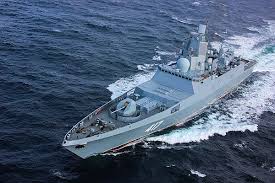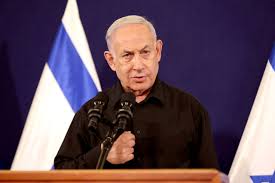BRUSSELS (TASS): Australia, Britain and the United States on September 16 announced a new trilateral security partnership – AUKUS – to maintain “stability in the Indo-Pacific.” It involves, in particular, the construction of at least eight nuclear submarines for Australia and equipping its armed forces with the latest American cruise missiles.
This news has already caused a reaction from China and New Zealand, whose authorities have already announced that they will ban Australian submarines from entering their waters, as well as France – it has lost one of the largest defense contracts in its history due to a new partnership.
TASS has collected the main things you need to know about AUKUS.
What did we agree on
In the next year and a half, the United States will transfer technology to Australia to build nuclear submarines to be built at the Adelaide shipyards.
Australia, using these technologies, will build at least eight submarines with a total value of over 90 billion Australian dollars ($ 65.9 billion). The first boats are expected to enter service in 2036.
Australians will also have access to American missile technology and Tomahawk cruise missiles for Hobart-class destroyers, as well as JASSM and LRASM for F / A-18 and F-35 aircraft.
The Australian ground forces will receive missiles capable of destroying targets at a distance of over 400 km.
The specific type is not named, but it can be assumed that we are talking about promising operational-tactical PrSM missiles, which are now being developed for the US military.
Australia will spend 1 billion Australian dollars (more than $ 0.7 billion) on the development of hypersonic missiles for air defense systems and precision ground targets.
Washington, London and Canberra additionally agreed to cooperate in the cybersphere, artificial intelligence and quantum technologies, as well as “additional capabilities of the submarine forces.”
What does it mean
Australia breaks the largest defense contract in its history with France, which was supposed to provide the construction of 12 non-nuclear submarines for the Australians in a project based on French nuclear submarines of the Barracuda class. The cost of this program was estimated at 50 billion Australian dollars (about $ 40 billion).
Australia announces its intention to join the elite club of countries with their own nuclear submarines. Now it includes the United States, Russia, Great Britain, France, China and India, and Brazil is developing a corresponding program with French assistance.
At the same time, we are not talking about the possible acquisition of nuclear weapons by Australia, assu-red United States President Joe Biden.
This is another Washington alliance in the Asia-Pacific region, although the United States is already working with Australia through ANZUS and the Five Eyes intelligence alliance, which also includes the UK.
How do the world react
The Chinese Foreign Ministry has already stated that the transfer to Australia of technologies for building nuclear submarines harms the nuclear nonproliferation regime and “aggravates the arms race.” The United States and Great Britain, according to Beijing, “apply double standards, which is extremely irresponsible.”
The PRC also called on the members of the new alliance to abandon the “outdated mentality of the Cold War era” and “narrow-minded geopolitical concepts.”
French Foreign Minister Jean-Yves Le Drian called the termination of the contract with Australia on submarines “actually a stab in the back.” Paris also has questions about United States behavior that “resembles [Dona-ld] Trump’s time,” he said.
New Zealand Prime Minister Jacinda Ardern has already warned that Australian nuclear submarines will not be able to enter New Zealand waters due to the country’s 1987 nuclear-free status. At the same time, she welcomed the expansion of the presence of the United States and Great Britain in the Asia-Pacific region.
Russia has not yet formed a position on the new partnership.
As the press secretary of the Russian president Dmitry Peskov explained, “first you need to understand the details of this alliance.”






